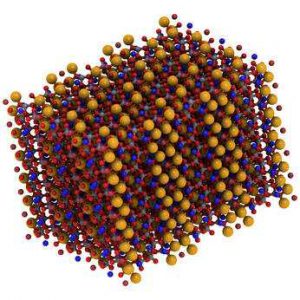
Although quite rare, Mesothelioma is a highly aggressive form of cancer which occurs in the lining of the lungs and abdomen. To be precise, it affects the thin layer of cells which are known as the mesothelium.
The only known cause of this rare but dangerous disease is being exposed to asbestos.
Asbestos: The Deadly Mineral Fiber

Anyone who has ever studied chemistry at a higher level may be able to recall asbestos. It’s basically a naturally occurring mineral fiber. Asbestos was once used extensively as an industrial insulation compound.
Most experts agree that all kinds of asbestos can lead to serious health problems in human beings. Apart from malignant mesothelioma, asbestos can also cause asbestosis in human beings. Fortunately, asbestos is today banned in most commercial capacities.
From Asbestos Fibers to Mesothelioma
Presently, exposure to asbestos is the sole identified cause of mesothelioma. This is due to the following characteristics of asbestos:
- The fibers of Asbestos are microscopic
- These fibers are very durable and extremely resistant to breakdown
- As these fibers are very small they can easily be inhaled
- The human body is unable to drive out these fibers
Once inhaled, the asbestos fibers then stick to cell tissue on the surface of the lungs and abdomen. This eventually causes the mesothelial cells of the lungs and the abdomen to get irritated.
Because our bodies are unable to properly break down these fibers or expel them, they keep on causing inflammation and thus give rise to harmful plaque on the tissue surface. This plaque then eventually forms the basis for the development of malignant cells and mesothelioma.
Usually, this entire process – i.e. between exposure to asbestos and the development of mesothelioma – takes a long time; in some cases several decades. That is the good news. The bad news; however, is that it is quite difficult to diagnose mesothelioma because the symptoms that help identify this disease are very similar to the symptoms of other respiratory problems which are less serious e.g. chronic cough.
Treatments and Therapies
If the symptoms of mesothelioma are identified at an early stage and the disease is properly diagnosed, it is treatable. However, like many other cancers mesothelioma is not a curable disease.
In recent years there have been major advancements in the treatment of mesothelioma and patients who undergo certain experimental therapies and treatments have survival rates that are much higher than in the past.
Therapies and treatments are being combined and patients can now benefit from tri-modal therapies that combine surgery, radiotherapy and chemotherapeutic techniques which provide specialized treatment schedules for each patient.
Although the disease is not presently curable, it is hoped that with these treatments mesothelioma patients today may be able to enjoy a much better quality of life as compared with patients in the past.












